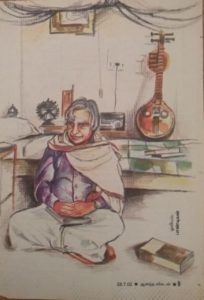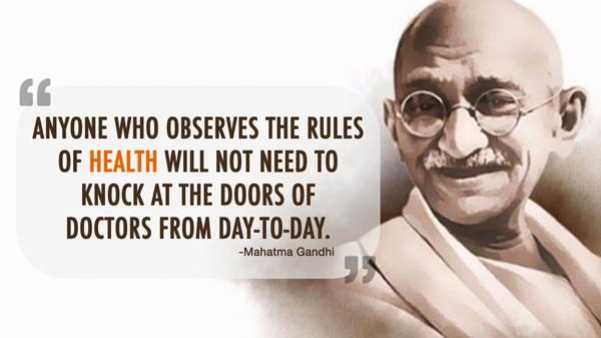There is a lot of discussions , no not discussion, mostly derision, on Ayurveda as an alternative medicine.
Looking back, personally I have relied more on Ayurveda , though I am not against allopathy when the situation demands. Each system has its strengths and weaknesses and I am sure they can complement each other.
It’s a moot point which of these systems should be called the ‘main’ and which one the alternative. But then, where English is the main language and our own languages, however rich, are classified as vernaculars, anything can happen.
I am reminded of a project I was part of, in the early nineties.
I was posted at Pithoragarh in Uttarakhand , a place that had the personal attention of the then Army Chief Gen BC Joshi. Pithoragarh is a military station close to the Chinese borders where huge chunks of land,over 2000 acres, had been acquired by the Ministry of Defence post 1962, for army units.

Later , a good part of that land became surplus to the establishment . Gen BC Joshi had great ideas of utilizing these pieces of land for various projects. One such project was Herbal Farms.
The basic idea was to cultivate various herbal plants , with focus on Himalayan flora with guidance from a Defence Agricultural Research laboratory located there. It was part of DRDO manned and equipped fot researching on high altitude agriculture and related subjects . The herbal products were to be supplied to various pharma companies like Humdard and Dabur.
During a visit by the Chief, besides army commander and other senior officers, the Chief Scientific Adviser to the Prime Minister had also been invited. It was none other than our missile man Dr APJ Abdul Kalam.

During an informal meeting over breakfast at the DRDO guest house, I had an opportunity to listen to a part of the discussions.
Dr Kalam was quite fascinated with the whole idea. I remember , him talking excitedly about a herbal cure for cancer based on a plant called taxus buccata. The drug developed by Dabur had recently been cleared by US, (in circa 1993). The name dropped casually by the great man, had got stuck to my memory since then. It’s a different matter that we haven’t heard about it since then.
The discussions meandered along over various native herbs used at various parts of the country. There was also some talk by Dr Kalam of some herbs being used for family planning in the rural areas.
After Gen BC Joshi’s untimely death the projects he had initiated had also died gradually.
If only we had had the will and a budget to support the idea of a Herbal Farm of that magnitude, it would have resulted in preservation and propagation of many rare medicinal herbs. Just as modern medicines suppress the immunity system of the body, the craze over allopathy has suppressed the native systems of medicine . Indians have simply forgotten to heal themselves.
In a broad sense, allopathy is a means to study and combat diseases ,while ayur veda or Yogasan deals with study of and preservation of health.
As case of self fulfilling prophecy , the higher budgets world over has led to more research and more advancement in allopathic system. Lack of support has reduced ayurveda to a dubious, alternative system of medicine.
 Today, for diagnosis , emergencies, and trauma care , allopathy is definitely far ahead of any other system. In preventive health care and non intrusive therapy, Ayurveda scores. Unfortunately , only people who cannot afford the high cost of western system of therapy opt for the native one.
Today, for diagnosis , emergencies, and trauma care , allopathy is definitely far ahead of any other system. In preventive health care and non intrusive therapy, Ayurveda scores. Unfortunately , only people who cannot afford the high cost of western system of therapy opt for the native one.
 A point that is very much debatable is the ethical side of the western system. It encourages people to break every rule of healthy living as they believe health can be bought from Hospitals and to a great extent, it is true. Health is bought and sold by Hospitals though the rates are driven by insurance and pharma companies .
A point that is very much debatable is the ethical side of the western system. It encourages people to break every rule of healthy living as they believe health can be bought from Hospitals and to a great extent, it is true. Health is bought and sold by Hospitals though the rates are driven by insurance and pharma companies .
In the next post, I shall write about my own experiences in facing a serious health challenge.

Sad indeed that what Gen Joshi had initiated has withered away. Have heard so much about Pithoragarh, and have it in my list to go beyond Ranikhet in the Kumaon hills.
Ayurveda is blessed with no side effects whereas Allopathy does in its haste of impact some collateral damage. Anything that you know Murali on varicose veins and ulcers caused as a consequence.
No idea about vericise veins. One problem with us is that we look for solutions from Ayurveda only when allopathy fails to provide a satisfactory one.
Always miracles are expected and are treated as miracles or quackery depending on the outcome.
With an open mind, I hope you find some solution within or outside allopathy.
Ayurveda and Atharvaveda, medical science of India, can do miracles even in the face of emergency and our study on the subject not yet successful in exploring this aspect. Pharmaceutical people undertaking research, like Patanjali and Dabur, can do needful.
Hi Krishna, nice to hear from you. Good to see doctors taking interest in our ancient sciences.
I do not know if Charak and Patanjali’s research was state sponsored. Ayurved having its origins in India deserved support from the Indian state, specially after Independence. It has survived this far despite state apathy and Allopathy’s quickfix- through- antibiotics culture only due to its deep roots in the Indian psyche. Lately, creation of Aayush Ministry is a much required positive development, though sadly this ministry failed to pull its weight during the current epidemic, simply capitualating to the bumbling allopaths. Time this ministry starts working on a roadmap to pick up this medicine from where the Rishis left and provide institutionalised framework towards research, education and developments in this field.
Else, “Ghar ka jogi jogda,
Anya gaanv ka siddha!”
👍🙏
Whole science of universe evolved from what was written by our great sagas thousands of year ago. Ayurveda is system of consistent disciplined mode of behavioural change and medication to strengthen body immune system powered by spiritual and yogic components. But whenever there is acute need of medication we look at allopathy which is indispensable. Allopathy has its own merits.
Very true. Allopathy has its merits; it would be sheer hypocrisy to say we don’t need this system. Some time or the other we have all taken allopathic medicines. At least theoretically, if one can live a disciplined life , and enjoy good fortune, there would be no need for medicines. But then most people feel, a life lived with too many Dos and Donts (yama, niyama) is no life at all!. Therein lies the dilemma .